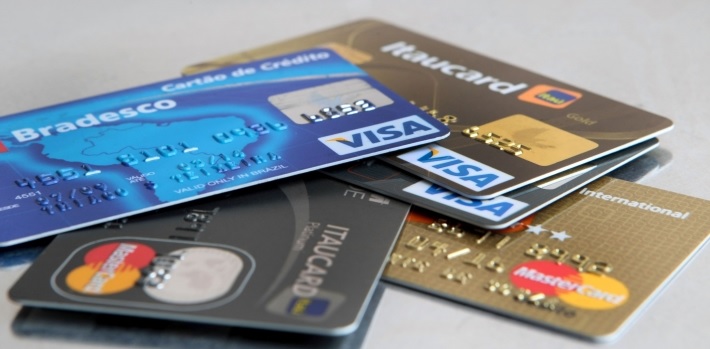In today’s fast-paced financial landscape, understanding the difference between Credit Cards and Debit Cards is crucial for every consumer. Whether you are looking to manage your budget or build credit, knowing the distinctions and implications of each can lead to smarter financial decisions.
Anúncios
This comparative analysis dives deep into the benefits and drawbacks of both, shedding light on which might be the better choice for you.
The basics of credit cards and debit cards

Credit Cards and Debit Cards may look similar and serve some of the same basic functions, but they operate fundamentally differently. Credit cards allow you to borrow money from the card issuer up to a certain limit to make purchases or withdraw cash.
Anúncios
Understanding these basic functions is pivotal. Credit cards involve borrowing, which means you will need to repay the borrowed amount, often with interest if you don’t pay the full balance every month. In contrast, debit cards involve spending the money you already have in your bank account, so there’s no borrowing or interest involved.
Convenience and accessibility
One of the primary reasons people use both credit and debit cards is convenience. Credit cards can be an excellent tool for making online purchases, booking travel, or handling large transactions without needing the funds upfront.
Debit cards, similarly, offer a straightforward approach to spending the money you have. They are ideal for everyday purchases like groceries, gas, and dining out. Because transactions draw directly from your checking account, you are less likely to overspend, making them an excellent option for budget-conscious individuals.
Security and fraud protection
Security is a significant concern for anyone using plastic to make purchases, and here, credit cards generally offer more robust protection. Most credit card issuers provide zero-liability policies, meaning you aren’t held responsible for fraudulent charges.
Debit cards also offer fraud protection, but it can be more limited. Under the Electronic Fund Transfer Act, your liability for unauthorized transactions depends on how quickly you report the loss or theft of your card. Immediate reporting minimizes your financial exposure, but if delays occur, you could be responsible for more substantial losses.
Financial management and impact on credit score
Another significant difference between credit and debit cards lies in their impact on financial management and credit scores. Credit cards can be a powerful tool for building credit. Each time you use your credit card responsibly and make on-time payments, you build a positive credit history, which is essential for borrowing money in the future.
Conversely, because debit cards do not involve borrowing, they don’t directly affect your credit score. This makes them a neutral choice for those who are not looking to build or impact their credit. However, this neutrality can be a double-edged sword if you are trying to establish a robust credit profile.
Budgeting and spending control
Knowing where your money goes is vital for financial health, and both card types offer tools to help you track spending. However, credit cards can sometimes lead to overspending due to the available credit limit, which may exceed the money you have on hand. This risk can be mitigated by setting personal spending limits and using budgeting apps linked to your credit card accounts.
Debit cards naturally help prevent overspending because you can only spend what you have in your account. This makes them an excellent tool for those looking to stick to a strict budget. Financial institutions often provide online banking tools and apps that help you monitor your daily expenditures, ensuring you stay within your financial means.
Rewards and incentives
Many consumers are drawn to credit cards because of the rewards programs they offer. From cash back and travel points to special discounts and bonuses, these incentives can provide significant value if managed correctly.
Debit cards, on the other hand, typically offer fewer rewards. Some financial institutions provide cash-back options or other incentives with their debit cards, but such programs are far less common and usually less generous than those associated with credit cards.
Making the right choice
In the debate between credit cards and debit cards, there is no one-size-fits-all answer. Your financial goals and habits play a significant role in determining which option is best for you. Credit cards offer advantages in building credit and earning rewards but come with the risk of debt and interest charges.
To make an informed decision, consider how you manage your finances, your spending habits, and your financial goals. Many people find a combination of both types of cards works best, using debit cards for everyday purchases and credit cards for larger expenses or to take advantage of rewards.
Ultimately, the key is to use these financial tools responsibly, paying close attention to your spending, and staying informed about the terms and conditions of your card agreements. By understanding the differences and benefits of credit cards and debit cards, you can make choices that enhance your financial well-being.
